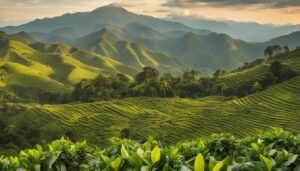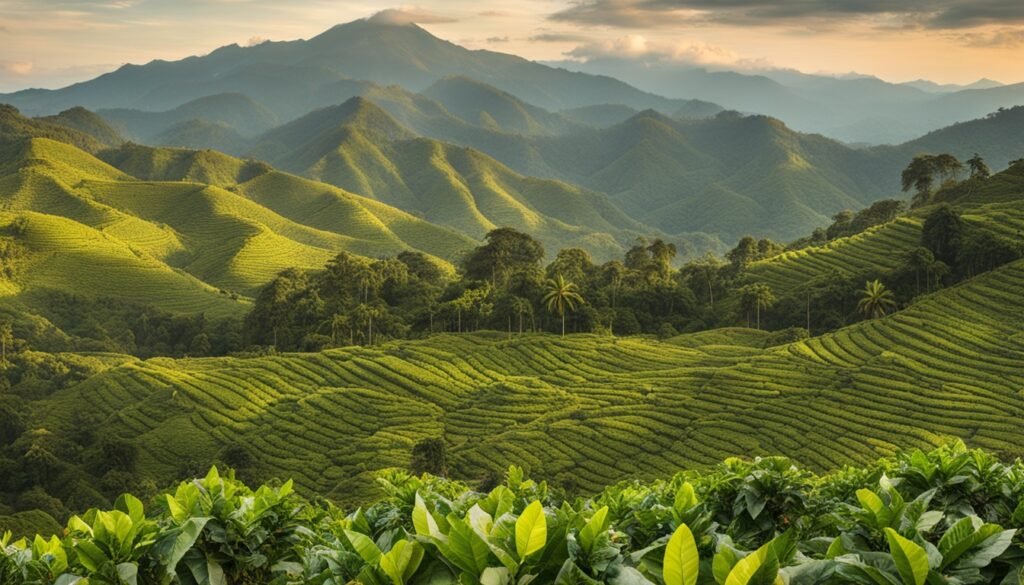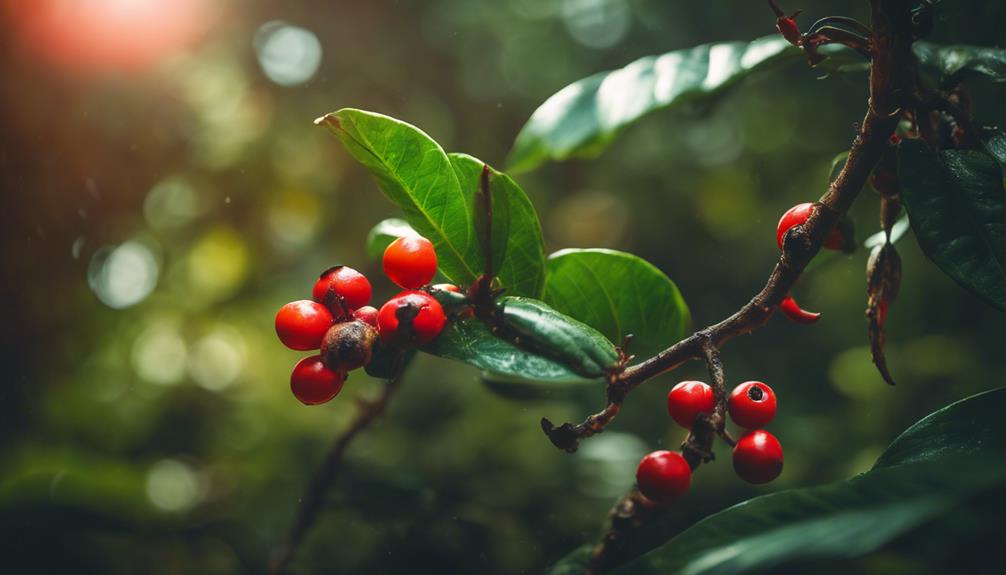Timor's coffee legacy boasts a rich history and exceptional quality. Introduced by Portuguese colonists in the early 1800s, coffee farming now supports about 25% of the population and makes up a quarter of the country's exports. The tropical climate and sustainable farming methods contribute to our coffee's unique profile, featuring earthy and chocolatey notes with low acidity.
Fair trade practices ensure that our farmers receive fair compensation, helping to empower local communities. The fully washed processing method gives our coffee a clean taste, making it both affordable and high-quality. This combination of factors makes Timor coffee exceptional.
If you're a coffee enthusiast looking to explore unique flavors, Timor coffee is a must-try.
Timor Coffee Overview
Timor's coffee industry might only account for 0.2% of global coffee production, but it's vital to the country's economy and supports about 25% of the population. Despite its small share in the global market, Timor's coffee is known for its top-notch quality.
The local coffee culture prioritizes sustainable farming, which helps protect the environment and improve community well-being. Economically, coffee makes up around 25% of Timor's total exports, significantly boosting national income.
Historical Background
Portuguese colonists brought coffee to Timor in the early 1800s, laying the foundation for the island's coffee industry. During the colonial period, coffee became a major export, shaped by European farming techniques.
When Portuguese rule ended in 1975, Indonesia took over and introduced new practices, but coffee still played a key role in the economy. After gaining independence, Timor took full control of its coffee industry, leading to important advancements.
Organizations like the Asian Development Bank have helped modernize farming methods and improve coffee quality. Today, Timor's coffee industry blends colonial influences with post-independence progress, boosting both the local economy and the global coffee market.
Geography and Climate
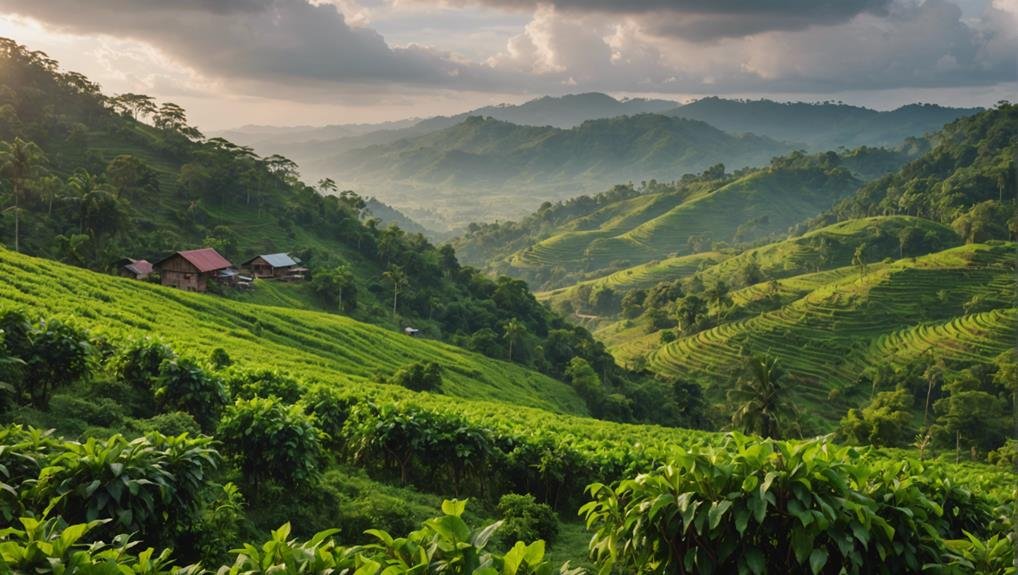
As we dive deeper into Timor's coffee, let's see how the island's geography and climate shape its unique coffee profile. Timor is nestled between Indonesia and Australia, offering perfect conditions for growing coffee. The island's tropical climate, with regular rainfall and mild temperatures, significantly influences the taste of Timor coffee. These conditions produce coffee with sweet, chocolatey, and earthy flavor notes, and low acidity.
The similarity in climate to Indonesia means Timor's coffee shares some characteristics with Indonesian coffee. The island's location also plays a crucial role in enhancing these unique qualities. By understanding how climate impacts flavor, we can see why Timor coffee is ranked among the top 1% globally in quality. This appreciation helps us recognize the value and distinctiveness of Timor's coffee.
Unique Coffee Characteristics
One of the key features of Timor coffee is its organic cultivation, which boosts its purity and flavor. This coffee is grown without chemicals, letting its natural qualities shine.
Timor coffee is famous for its earthy notes and low acidity, setting it apart from other global coffee varieties. These traits come from the island's rich soil and favorable climate, similar to neighboring Indonesia.
When brewed, Timor coffee reveals a subtle sweetness and chocolatey undertones, resulting in a smooth and satisfying cup. The fully washed processing method also ensures a clean taste, making it ideal for immersion-style brewing methods like French press or AeroPress.
Timor coffee is both affordable and high-quality, making it a hidden gem in the specialty coffee world.
Supporting Timorese Producers
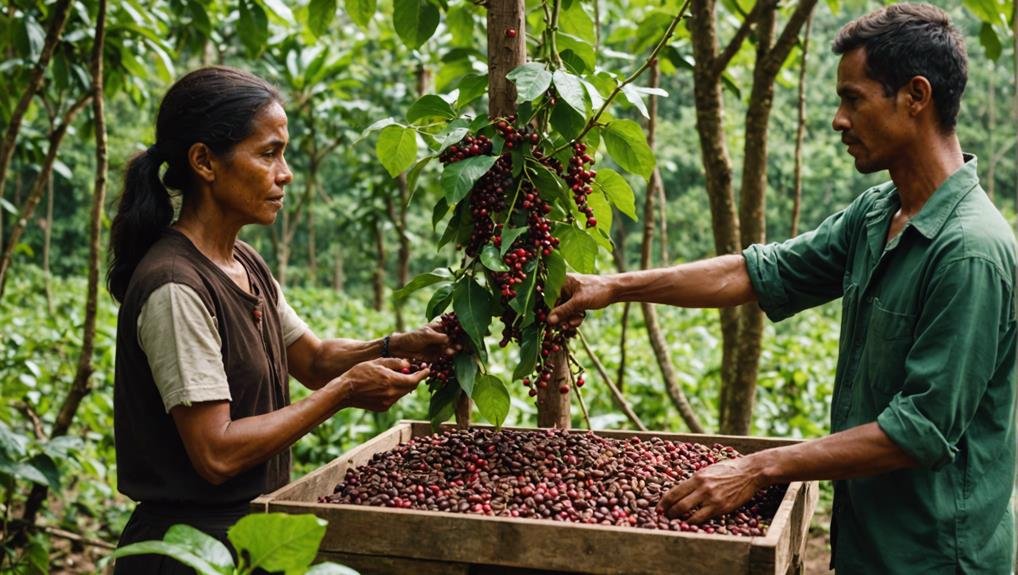
Supporting Timorese coffee producers is crucial for their livelihoods and helps preserve their coffee heritage. By practicing fair trade, we ensure farmers get fair pay, which boosts their local economy. Sustainable farming keeps the land healthy and supports long-term coffee production. Initiatives like cooperatives empower farmers by letting them share resources and knowledge. Choosing Timorese coffee supports a fair and sustainable coffee industry. These efforts help Timor maintain its reputation for high-quality, organic coffee, while improving the lives of its producers.
For instance, when you buy Timorese coffee, you directly help farmers like Maria, who uses fair trade earnings to send her children to school. Additionally, cooperatives allow farmers to invest in better equipment, leading to higher-quality coffee that benefits everyone. By supporting these practices, you contribute to a brighter future for Timor's coffee farmers and enjoy a superior cup of coffee.
Conclusion
As we enjoy Timor's exceptional coffee, we're reminded of its unique appeal. Timor's rich history, special climate, and careful cultivation methods create a brew that matches the world's best.
By exploring Timor's coffee culture, we not only enjoy its distinct flavors but also support a community deeply connected to this tradition.
Let's keep discovering and appreciating the stories behind each cup we drink.


